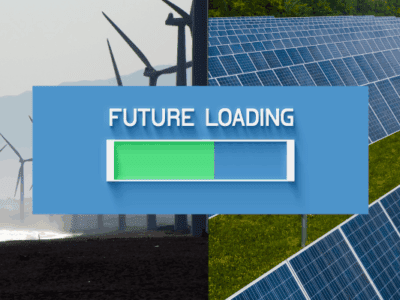Hydrogen — Fuel of the Future?
Using this tiny molecule for energy may be key to decarbonization.
As it has more than once in the past, hydrogen has become a hot topic in climate policy circles. Although widespread use of hydrogen is probably a decade away, there’s a lot of excitement about the prospect. The fundamental appeal of hydrogen as an energy source is that it produces water rather than carbon dioxide when it’s used. Hydrogen could help solve some major problems in the energy transition to a zero-carbon future. For that to happen, however, we will have to overcome serious technical and economic issues.
Possible applications of hydrogen cover a broad range. For example, fuel cells, which produce electricity from hydrogen, could replace batteries in many applications, particularly in transportation. Hydrogen storage by utilities could provide an attractive way of dealing with the increased volatility of the grid as the use of renewable energy expands. Unlike batteries, hydrogen lends itself to long-term storage of very large amounts of energy. Hydrogen could also be burned, alone or in combination with natural gas, in many applications, such as running turbines to produce power or industrial processes requiring high temperatures. No wonder people are excited.
To actualize these potentials, some serious barriers have to be overcome. The first question is how to produce the hydrogen. It can be produced from natural gas through a chemical process, but this is only a good climate solution if we can capture and sequester the resulting carbon dioxide. Carbon capture, however, is not yet economically feasible at large scale. Hydrogen can also be produced by using electricity to split water into hydrogen and oxygen, which can be a zero-carbon process if the electricity comes from renewables. We need significant technological improvements, however, to bring the cost of this process down. Technological improvements are also needed to increase the efficiency and bring down the cost of fuel cells. Hydrogen is also tricky to store, because the tiny gas molecules are adept at finding leaks and the liquid version must be kept at -421°F (as opposed to -260°F for natural gas). Even when we solve these issues, we’ll still have to deal with all the policy and economic problems of creating the necessary infrastructure, such as a distribution system to get hydrogen into the tanks of vehicles.
There’s some grounds for optimism that these problems can be solved over the next few years. Technological developments have been encouraging. There’s also going to be money flowing into research, development, and deployment. The EU pledges to produce at least a million tons of hydrogen through electrolysis powered by renewable energy by 2025, and at least ten million by 2030. China is also making a serious commitment to hydrogen. President Biden has identified hydrogen as a focal point for DOE’s R&D. And utilities are already seriously interested. Hopefully, as with renewables and battery storage, the result will be a cycle of decreasing costs and technological improvements.
Hydrogen is probably not going to make a big contribution to meeting our 2030 climate goals. It looks much more likely to be a critical part of meeting 2040 and 2050 goals. There’s a lot more to be written about this topic, but I hope what you’ve read here is enough to whet your interest.
Reader Comments
2 Replies to “Hydrogen — Fuel of the Future?”
Comments are closed.





There is no way Hydrogen is in the running — it must be stored and maintained at very low temperatures which requires costly refrigeration, special materials, energy and handling. Who needs that?
Excess renewable energy could be used to make hydrogen which could be processed and stored as liquid ammonia with a lot less hassle. It’s already one of the most widely produced chemicals. But it too needs to be “green.”